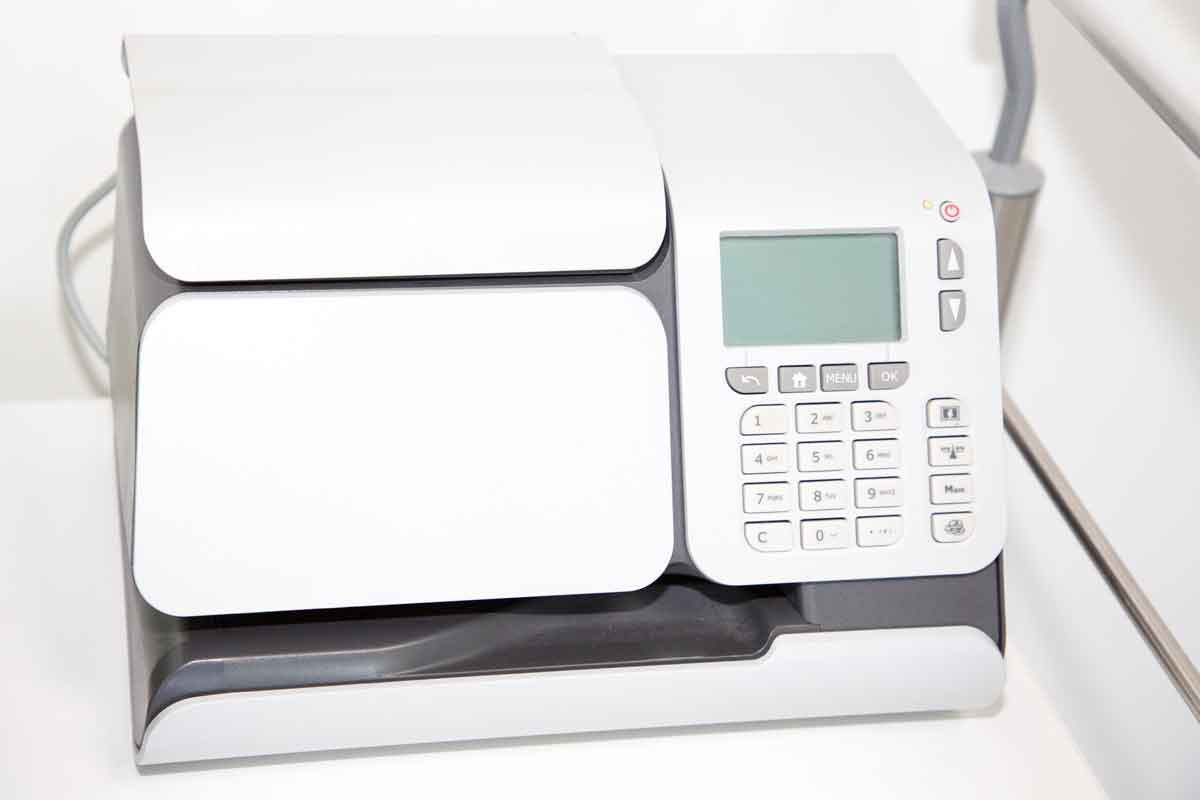Optimising business expenditure is a paramount concern for companies of all sizes. One area that can often be overlooked, yet presents an opportunity for significant cost-saving, is postage. Franking machines can streamline the mailing process and offer savings over traditional postage. However, brand new franking machines can be an expensive outlay.
This brings us to the question: is buying a pre-owned franking machine a sensible idea? This article aims to shed light on the advantages and pitfalls of such an investment.
Comparing the ROI of used franking machines vs new
Below is an estimated data table comparing the costs associated with new and second-hand franking machines over a span of three years.
| Expense Category | New Franking Machine (£) | Second-Hand Franking Machine (£) | Savings (£) |
|---|---|---|---|
| Initial Purchase Price | 4,000 | 1,500 | 2,500 |
| Depreciation (3 years) | 1,200 | 450 | 750 |
| Maintenance (3 years) | 600 | 900 | -300 |
| Ink and Supplies (3 years) | 300 | 300 | 0 |
| Software Upgrades (3 years) | 200 | 400 | -200 |
| Warranty (3 years) | Included | 300 (Optional) | -300 (if opted) |
| Total Cost (3 years) | 6,300 | 3,850 | 2,450 |
| Estimated ROI Time | 2 Years | 1 Year | 1 Year Faster |
*All figures are estimated and should be used for illustrative purposes only.
- Takes 2 minutes
- Receive quotes to compare
- Easy and no commitment
Notes:
- Depreciation is calculated as a percentage of the initial purchase price, assuming 30% depreciation for new machines and 10% for second-hand machines over 3 years.
- Maintenance costs for second-hand machines are estimated to be higher due to potential wear and tear.
- Ink and supplies are considered equal for both, although some new machines may offer initial discounts.
- Software upgrades are more likely needed for older, second-hand machines.
- Warranty for new machines is often included, while it may be an additional cost for second-hand machines.
This table makes it evident that even with higher maintenance and potential software upgrade costs, a second-hand franking machine can still offer considerable savings, both upfront and over time.
| Important note |
|---|
| Any second-hand franking machine must be deregistered from the previous owner and re-registered to your business with Royal Mail. Operating an unregistered machine can result in penalties or refused postage. |
Advantages of buying a second-hand franking machine
Cost-effectiveness
The most obvious advantage of buying a used machine is the potential for cost-saving. A new franking machine can be an expensive investment, particularly for small to medium-sized enterprises (SMEs). Pre-owned machines can often be purchased at a fraction of the cost, freeing up capital for other areas of the business.
Depreciation
Just like a new car, a new franking machine will depreciate in value as soon as it leaves the showroom. A pre-owned machine will have already undergone this depreciation, making it a more stable investment.
- Give your requirements
- Receive quotes to compare
- Choose a provider or walk away - your choice!
Performance and reliability
Franking machines are generally robust and built to last. With proper maintenance and servicing, a second-hand machine can offer similar levels of performance and reliability as a new model.
Quick ROI
Given the lower upfront costs, a pre-owned franking machine will often deliver a quicker return on investment (ROI) compared to a brand-new machine.
How much cheaper are used franking machines? Understanding the cost savings of a second-hand machine
When considering the purchase of a pre-owned franking machine, one of the most compelling arguments in its favour is cost savings. But just how much can you save? Let’s delve into the specifics to understand the economics better.
Initial outlay
New franking machines can vary widely in price depending on the brand and features, ranging from a few hundred to several thousand pounds. On the other hand, second-hand franking machines can be acquired for a fraction of the cost, sometimes saving businesses up to 50-70% on the initial purchase price.
Depreciation and resale value
As previously mentioned, a new franking machine starts depreciating as soon as it’s purchased. In contrast, a pre-owned machine has already experienced the bulk of its depreciation, thereby retaining its value better. This makes a second-hand franking machine a more stable investment and offers a higher resale value should you decide to upgrade or sell the machine in the future.
Maintenance and servicing costs
While it’s true that a pre-owned machine might require more frequent servicing or may have parts that need replacement, these costs are often significantly lower than the initial savings made on the purchase. Many businesses find that even with these additional expenses, a pre-owned machine still provides a more cost-effective solution in the long term.
Hidden costs
It’s worth noting that a new machine often comes with incentives like free servicing for a limited period or discounted ink and supplies. While attractive, these offers are generally factored into the higher upfront cost of the machine. With a second-hand machine, the lack of such offers is often outweighed by the lower purchase price and the quicker ROI.
ROI calculations
A new franking machine may take a couple of years to provide a return on investment, depending on the volume of post your business handles. In contrast, because of the lower upfront costs, a second-hand machine can often deliver a return on investment in a much shorter time, sometimes within just a few months.
Cost of upgrades and customisation
Finally, while it may be tempting to go for a new machine with the latest features, it’s essential to consider whether these features will genuinely benefit your business. If the answer is no, then the additional cost for bells and whistles may not be justified. A pre-owned machine with fewer features might meet your business needs at a much lower cost.
In summary, the cost savings offered by a second-hand franking machine can be quite substantial, both in terms of initial purchase price and long-term value. By carefully weighing these factors, businesses can make an informed decision that aligns with their financial and operational goals.
Risks and considerations
Warranty and service
One downside of buying a pre-owned machine is that it may not come with a warranty or service plan. This leaves the business vulnerable to potentially high costs for repairs or replacement parts.
Technology and features
Franking machines are increasingly sophisticated, with newer models offering enhanced features like detailed tracking and analytics. A pre-owned machine may lack these features or require costly upgrades.
Compatibility
Businesses must ensure that the pre-owned machine is compatible with their existing mailing systems. This might involve additional costs for adaptors or software upgrades.
Seller reliability
It’s crucial to buy from a reputable seller to ensure the machine is in good working condition. Always check customer reviews and ratings when buying online and if possible, inspect the machine in person before making a purchase.
Conclusion – Are used franking machines a good idea?
Buying a pre-owned franking machine can offer substantial cost advantages and a quicker ROI. However, businesses must be mindful of potential pitfalls such as lack of warranty, outdated technology, and compatibility issues.
The key to a successful purchase lies in comprehensive research and choosing a reliable supplier. If these considerations are carefully addressed, a second-hand franking machine can prove to be a wise investment for businesses looking to optimise their postage costs.
FAQ for used franking machines
When purchasing a used franking machine, it’s crucial to check the machine’s condition, the remaining warranty (if any), and its compatibility with your existing mailing system. Also, verify if any software updates are required and estimate their cost.
A second-hand franking machine can be just as reliable as a new one, provided it has been well-maintained and serviced regularly. It’s always advisable to purchase from a reputable seller and, if possible, to inspect the machine in person before making a decision.
To ensure compatibility, firstly identify your mailing requirements in terms of volume, frequency, and types of mail. Then check if the pre-owned franking machine meets these needs. You may also need to consider software compatibility and any additional features you require, like tracking or analytics.
Some hidden costs could include software updates, replacement parts, and additional servicing. There might also be a cost for extended warranty or service packages, which are often included in the purchase of a new machine.
The ROI for a used franking machine can be calculated by dividing the money saved on postage and the reduced initial outlay by the total cost of ownership, including purchase price, maintenance, and supplies. Generally, a used machine will offer a quicker ROI due to lower upfront costs.
Finding replacement parts for a pre-owned franking machine is generally not difficult, especially if the model is still in common use. Many suppliers offer parts for older models, but it’s advisable to check availability before making a purchase.
Warranty options for second-hand franking machines can vary. Some sellers offer limited warranties or service packages at an additional cost. Always confirm warranty details before purchasing to avoid unexpected expenses later.
Yes, make sure that the used franking machine is compliant with current postal regulations. It should also be de-registered from its previous owner to avoid any legal complications.
Yes, some Royal Mail-approved suppliers offer refurbished machines on lease. This provides low upfront costs while avoiding ownership risks. Terms vary, so ask about maintenance inclusion.
Yes—provided the machine is Royal Mail-approved, de-registered properly, and re-registered in your name, you’ll still qualify for discounted postage rates.
As with any significant business investment, it’s always wise to conduct thorough research and due diligence before making a decision.

